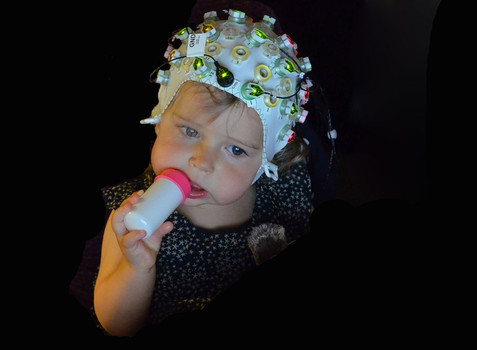Physicians, philosophers, the clergy, and psychologists have argued about the inherent morality of humans for centuries. The arguments that continue today focus on the effects of nature versus nurture in the development of what most people consider morally correct behavior. Jason M. Cowell and Jean Decety with the Department of Psychology at the University of Chicago are the first to show that moral discernment and a sense of morality are apparent in children at one year of age. The study was reported in the August 31, 2015, edition of the journal Proceedings of the National Academy of Sciences.
Seventy-three children between one year of age and two years of age were monitored with electroencephalography recordings while the children viewed what would be considered prosocial and antisocial behaviors in films. The children’s brain responses were also recorded when the children observed similar prosocial and antisocial behaviors demonstrated by puppets. The children’s choice of a prosocial or antisocial behavior was determined by the reaching behavior of the children toward a character in the film or live demonstrations.
The brain activity in the children differed in response to the prosocial or antisocial tendencies of each individual child. Some children were more attracted to prosocial behavior and some were more enticed by antisocial behavior. The test elicited higher levels of brain activity in the frontal cortex of the children’s brain.
The researchers contend that this experiment provides some evidence for a natural morality that is not trained into a child. The researchers do concede that even at an early age a sense of morality may be influenced by how parents treat an infant or toddler as well as physical effects like proper nutrition. The study will not be the end of the arguments about the origin of morality in people but it does show that some people are naturally nice and some children appear to be wired to be bad.















